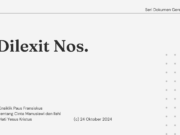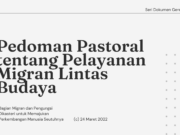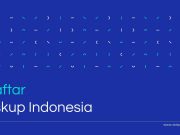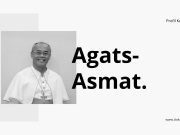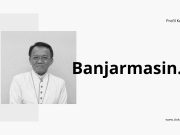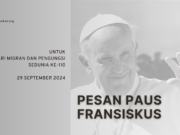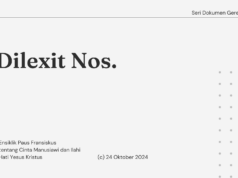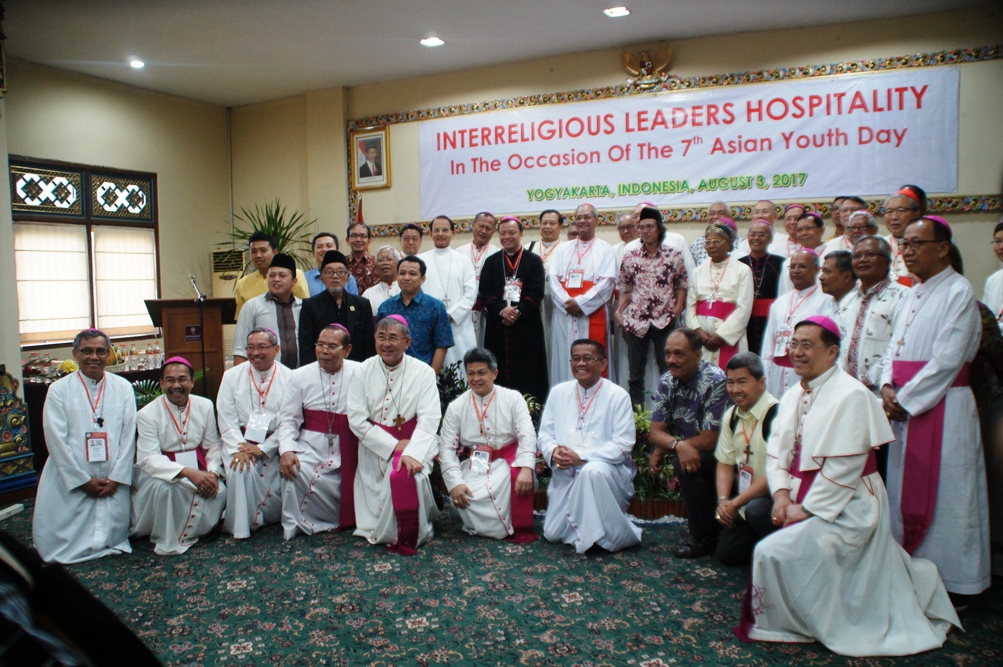
YOGYAKARTA’S gathering of youth has a major interfaith dimension. A meeting was held today to discuss ‘Unity in Cultural Diversity’ centred on coexistence.
For Islamic leaders, radicalism and terrorism are challenges to be met together. Intolerance and terrorism are not expressions of true values of Asian culture, said Card Patrick D’Rozario of Dhaka. For former Muhammadiyah president Prof Syafi’i Maarif, corruption, social injustice and Arabisation are the causes of sectarianism in Indonesia.
Asian Youth Day (AYD) has brought to Yogyakarta (Central Java) more than 2,000 young Catholics from 22 Asian countries. The gathering, which will last until 6 August, has a strong interfaith dimension. In fact, the third day today, whose theme was ‘Unity in Cultural Diversity’, ended in a close-door meeting on peaceful coexistence between a number of cardinals and bishops from Asia with some important Indonesians involved in interfaith dialogue.
Participants in this meeting included Mgr Yohannes Harun Yuwono, bishop of Tanjungkarang and chairman of the Commission for Interreligious Affairs of the Catholic Bishops’ Conference of Indonesia (Komisi HAK KWI), Jesuit priest Fr. Heru Prakosa, who teaches at the Catholic Sanata Dharma University in Yogyakarta, Suhadi Cholil, a lecturer at the Islamic State University, and Savic Ali, social media director at NUtizen, Nahdlatul Ulama’s multimedia application.
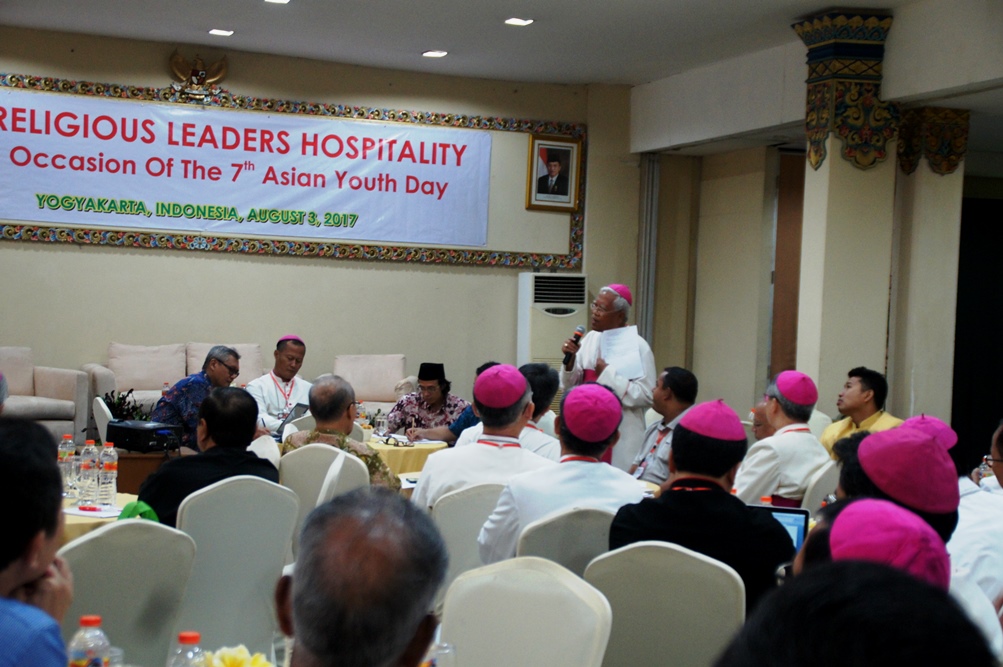
The latter is Indonesia’s foremost moderate Muslim organisation, which supports pluralism, interfaith dialogue and human rights.
Both Muslim speakers said that both Islamic and non-Islamic communities face certain challenges. One is the rising radicalism, which promotes fundamentalism among Muslims and bias against religious minorities. The other is terrorism, which manipulates Islamic teachings to put in Muslims’ minds “misleading theological views that condemn socialising with people of other religious denominations.” The two Muslim leaders call for resistance to the temptation of suspicions and reject these “false ideas”.
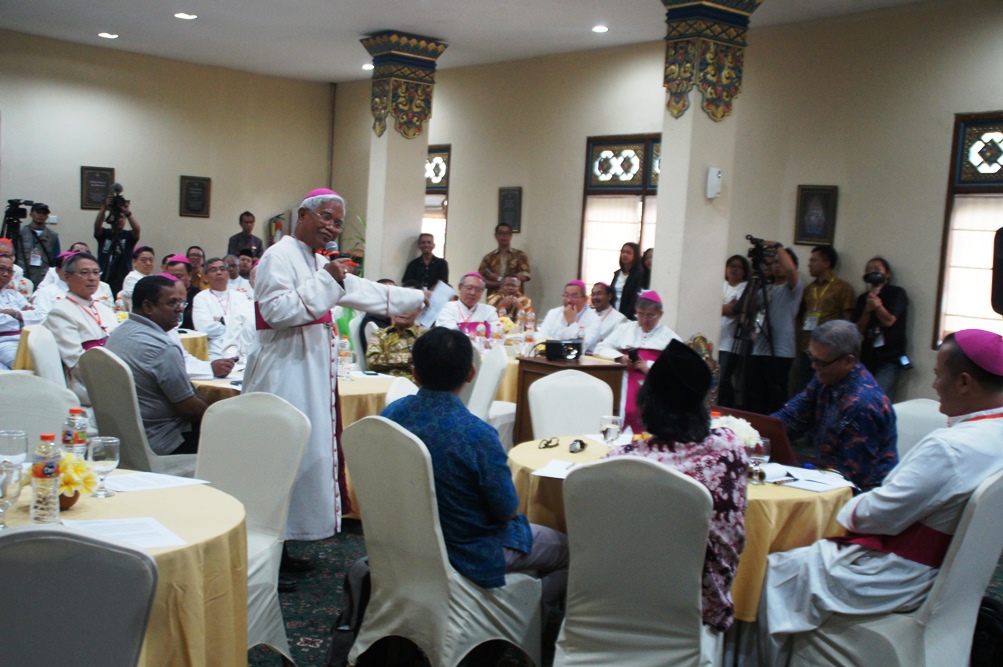
Although radicalism and terrorism find fertile ground on the internet. However, for Savic Ali social media can also become a “tool to promote peaceful coexistence and eradicate extreme visions or manipulated teachings of certain religious doctrines.”
Other Catholic leaders also took part in the discussion, sharing opinions and experiences. Bishop Anicetus B. Sinaga, archbishop of North Sumatera (Indonesia), said that every religion promotes peace and tolerance, but it is nevertheless the responsibility of religious leaders to spread these values among the faithful.
Card Patrick D’Rozario of Dhaka (Bangladesh) noted that intolerance and terrorism are not an expression of the true values of Asian culture. Nevertheless, it is Asia’s responsibility to convey the ideals of tolerance and solidarity to other continents.
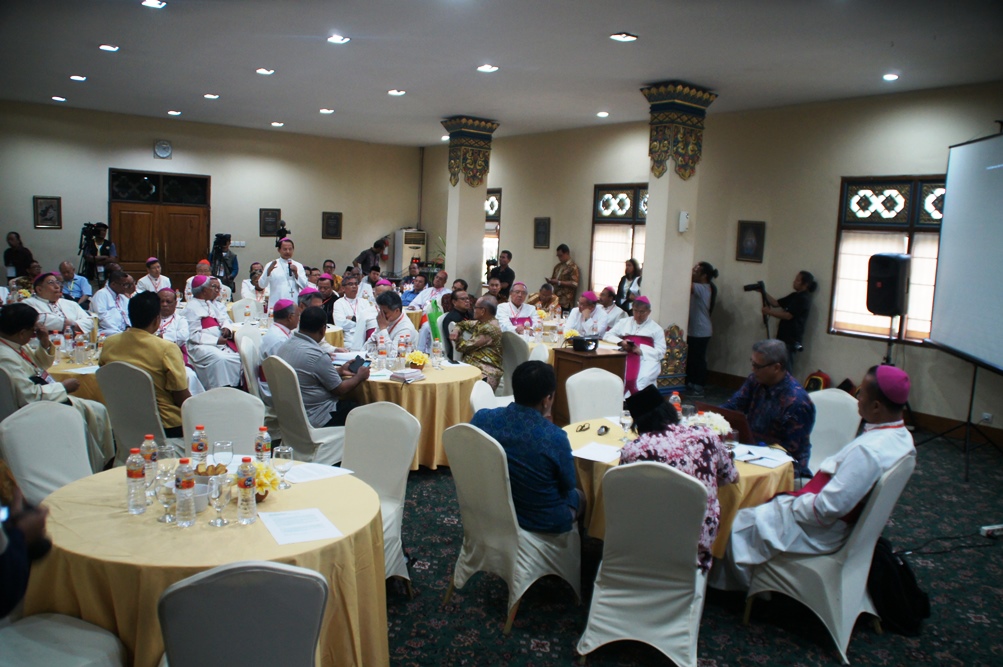
Prof Syafi’i Maarif, former president of Muhammadiyah, Indonesia’s second moderate Islamic organisation, identified three causes for the spread of radicalism in Indonesian society.
In his view, corruption and social injustices due to the growing gap between rich and poor contribute to intolerance and violence between different religious and cultural communities. The third factor is the “deviant Arabisation” of Islamic culture in the country.
“Indonesians have been brainwashed,” he bemoaned. “It is not true, as many think, that Arabism is the authentic part of Islam. ” In Indonesia, he added, corrupt politics has contributed to incidents of intolerance.
In fact, some conservative parties have recently formed a close alliance with radical Islamic movements to push their political agenda, contributing to Islamist trends that have generated strong tensions in Indonesian society over the past few months, as in the “Ahok trial” case.
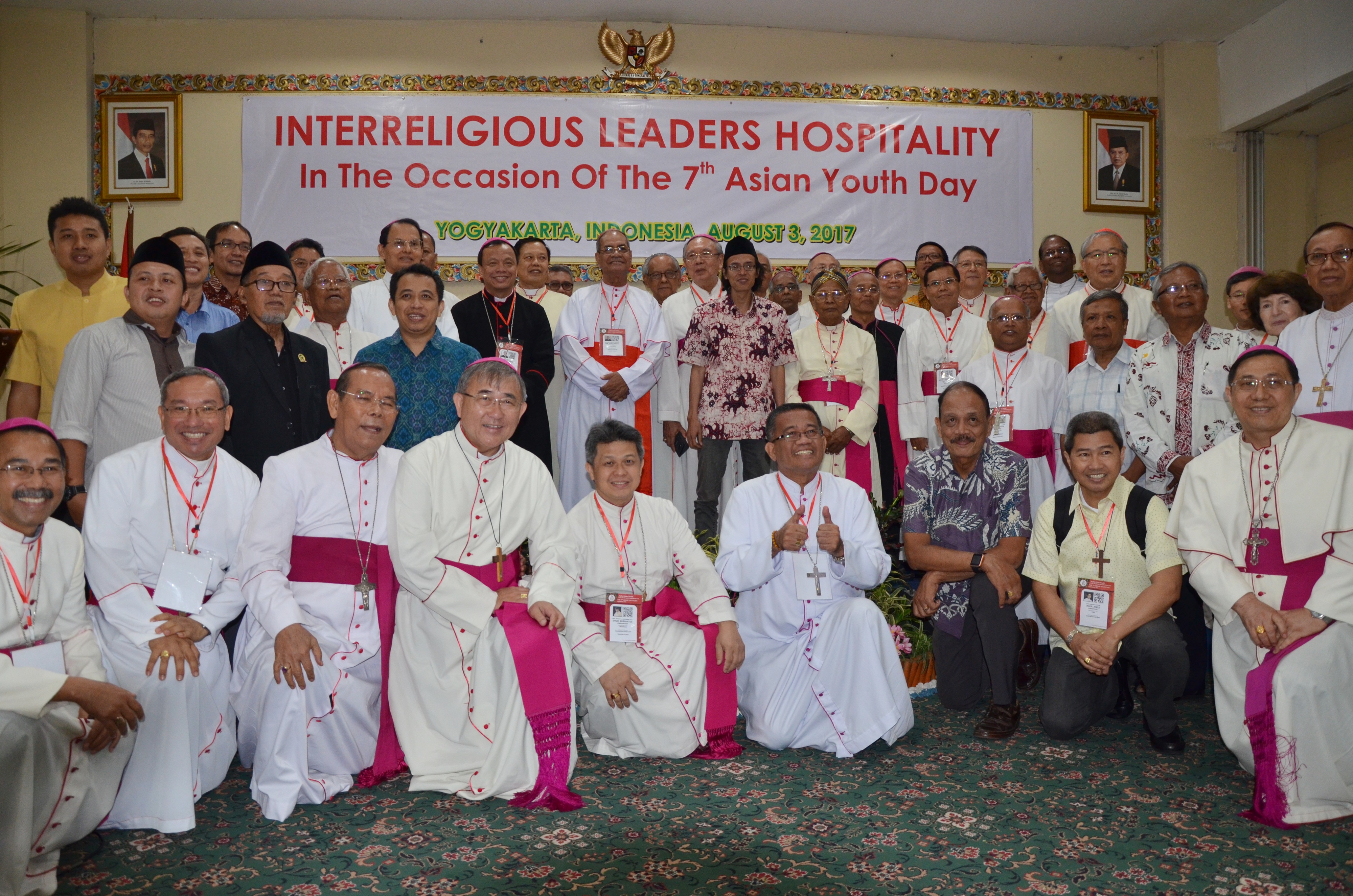
Back in May, under pressure from extremist organisations, a district court in North Jakarta convicted Basuki “Ahok” Tjahaja Purnama, a Christian and the incumbent governor of Jakarta, on blasphemy charges for suggesting that some people abusively cited a Quranic verse to block his re-election.
His controversial two-year jail sentence gave Indonesia’s civil society a jolt, leading to what some have called a “new Indonesian nationalism“, one that promotes the doctrine of pluralism.
Last July 2017, President Joko “Jokowi” Widodo signed a decree that gives the government the power to ban radical Islamist organisations.
Ref: www.asianews.it
PS: AsiaNews.it also provide this same article in Mandarin, Spanish, and Italian as the following links.


